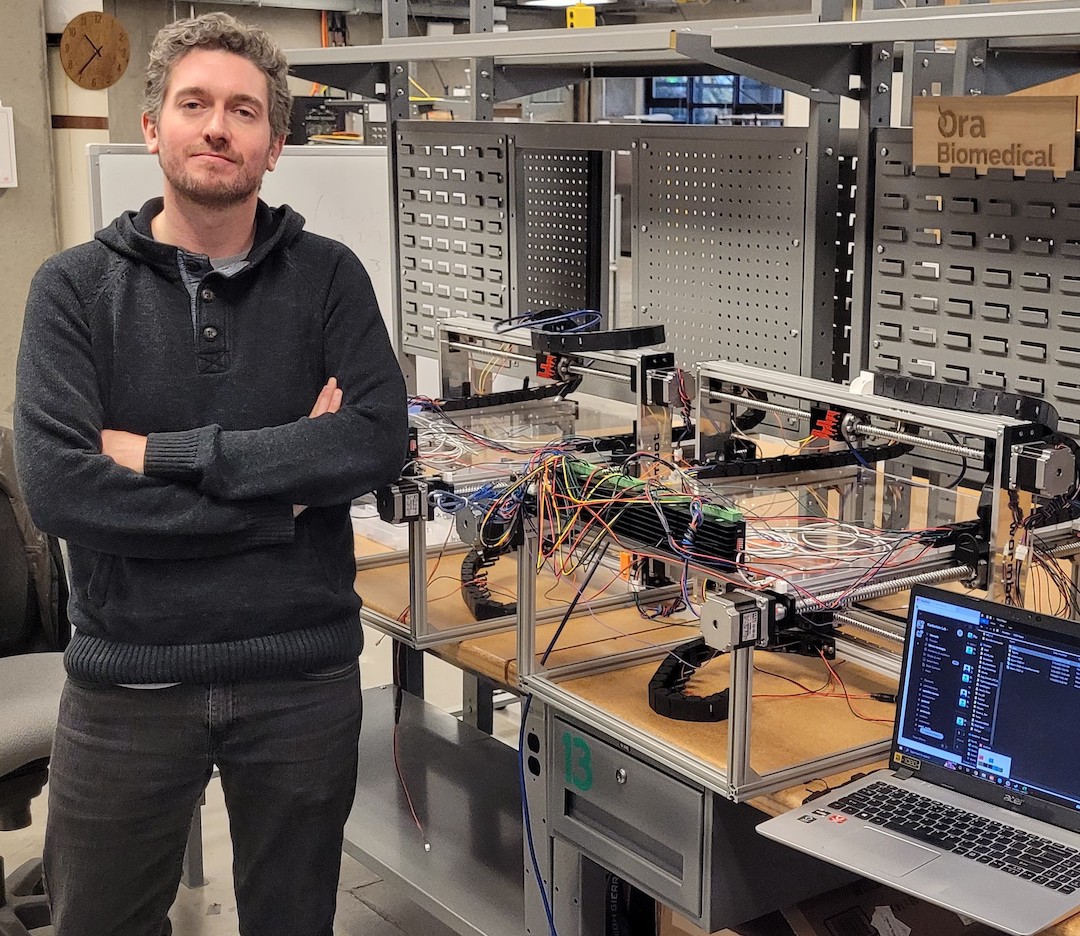
Today we are talking with Mitchell Lee, PhD about the biology of aging and how pharmaceutical and natural product interventions can help older athletes prolong our healthy, active lives while fighting disease by addressing the root causes of aging. This conversation is aimed at the lay-person to allow us non-scientists to benefit from Dr Lee’s deep knowledge of this topic.
- What biological aging really is…what is actually happening in the body
- Recent progress made in aging science
- Longevity and healthspan interventions available today and where is the research going
Want to support the show?
If you are enjoying WiseAthletes, a great way to support the show is by leaving a review on the Apple Podcasts. It only takes a minute and helps more people find the episodes. Thanks.
Dr Mitchell Lee Bio
Dr Lee received his PhD in Experimental Pathology from the University of Washington School of Medicine, where he trained with Matt Kaeberlein . He is the Co-founder and CEO of Ora Biomedical, a new pharmaceutical company seeking to realize the full potential of healthy aging therapeutics by developing “a new generation of broad use small molecule healthy aging interventions for humans, companion pets, and all other organisms for which prolonged healthy survival is desired.”
Links to checkout:
Lifespan extending chemicals confirmed by NIA ITP:
- Rapamycin
- Acarbose (males>females)
- 17a-estradiol (males only)
- Canagliflozin (SLGT2 inhibitor; males only)
- Smaller but significant benefits from three other agents: NDGA, Protandim, glycine
- Many more currently being tested (see website for details)
The National Institute on Aging Interventions Testing Program was designed to be the most exhaustive testing framework and system to evaluate whether longevity molecules extend longevity in mice and understand the underlying mechanisms leading to those benefits.
Outline of Discussion:
- Intro 00:08
- Discussion begins 2:15
- Dr Lee’s background 3:00
- Aging is more than entropy 3:48
- Modeling aging 4:44
- What can we learn from studying worms? 5:18
- What is aging, really? 7:25
- Lifespan vs healthspan / chronological vs biological age 8:24
- Hallmarks of aging 12:45
- More on aging process 15:39
- Dr Lee’s advice 23:13
- National Institute of Aging / Dog Aging project / Interventions Testing Program 26:49
- Rapamycin deep dive 32:38
- How to accelerate the search for better interventions? 36:18
- What can older athletes do now to take advantage of longevity interventions 46:30
- Watch out for over exuberance 48:29
- How much of a benefit is possible? 49:47
- How to learn more about ora 51:47
Aging hallmarks
- Genomic instability – DNA damage that mutates cells and can potentially cause cancer and other harmful cell behaviors.
- Epigenetic alterations – Changes to gene expression that makes cells old and more dysfunctional.
- Telomere attrition – The protective caps on our chromosomes erode, which leads to loss of tissue regeneration.
- Loss of proteostasis – Loss of efficient protein creation and the accumulation of cellular waste.
- Mitochondrial dysfunction – Free radicals and oxidative stress damage to the mitochondria leading to mitochondrial mutations and failure of energy production.
- Deregulated nutrient sensing – Failure of appropriate response to nutrients, cell growth, loss of energy production, and other cellular functions.
- Cellular senescence – Worn out, damaged cells accumulate, which leads to chronic inflammation and loss of tissue regeneration.
- Stem cell exhaustion – A loss in the ability of our stem cells to regenerate damaged tissues due to running out of healthy replacement cells.
- Altered intercellular communication – Altered cell-to-cell communication leading to chronic inflammation and dysfunctional cell behavior.
- Microbiome Disturbances — shifts in microbial populations and loss of species diversity. Together with age-associated loss of structural integrity of the gut and other barriers (e.g. blood brain barrier), this shift in microbial populations can drive inflammation
- Compromised Autophagy – observed in numerous aging conditions including neurodegeneration and immunosenescence. Activation of autophagy can increase lifespan, and even improve immune response to vaccination by overcoming immunosenescenc
- Inflammation: “Inflammageing”, an age-dependent chronic inflammation, is implicated in a wide range of age-related diseases. Aging correlates with high, levels of inflammatory mediators in the blood, such as IL-1, IL-6, C-reactive protein (CRP), IFNα, and others.


Excellent site. Thank you, and for not just listing Aging Hallmarks, but giving a brief description.
Thank you,
@nuclearball
I am interested in your research and excited about the potential of the project.